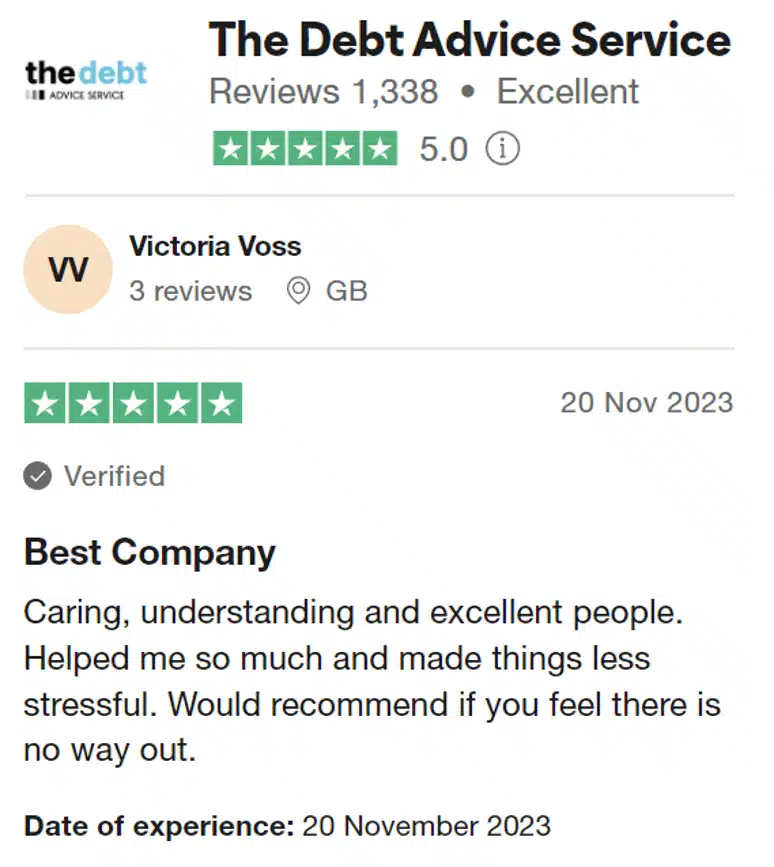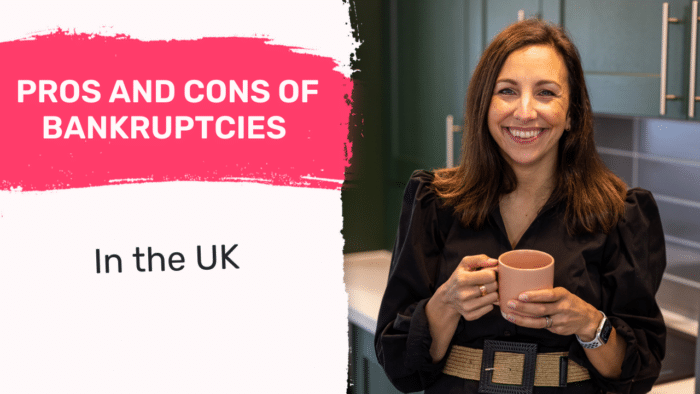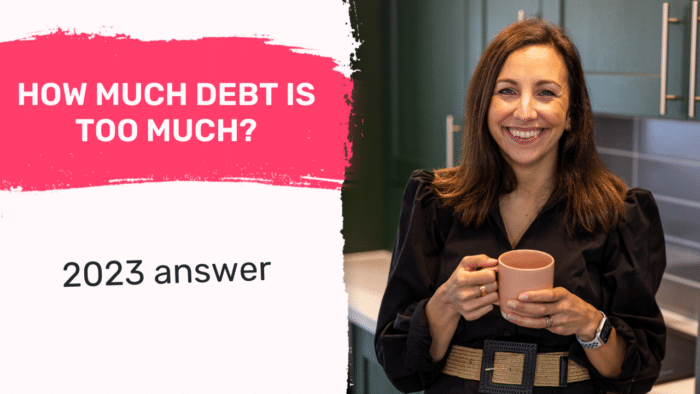Will an IVA Affect My Partner’s Credit Rating?
For free & impartial money advice you can visit MoneyHelper. We work with The Debt Advice Service who provide information about your options. This isn’t a full fact-find, some debt solutions may not be suitable in all circumstances, ongoing fees might apply & your credit rating may be affected.
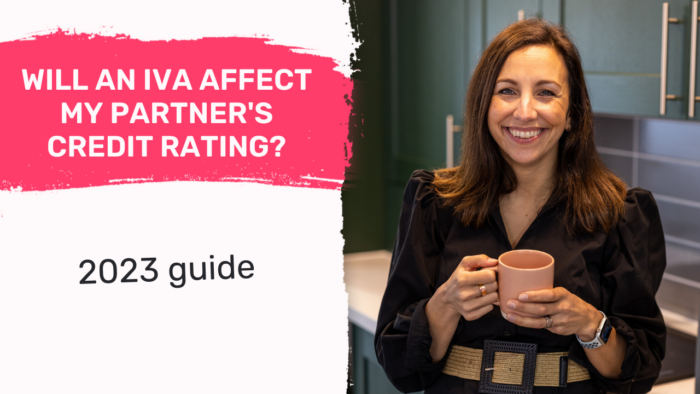
For free & impartial money advice you can visit MoneyHelper. We work with The Debt Advice Service who provide information about your options. This isn’t a full fact-find, some debt solutions may not be suitable in all circumstances, ongoing fees might apply & your credit rating may be affected.
Are you worried about how an Individual Voluntary Arrangement (IVA) could affect your partner’s credit rating? You’ve come to the right place. Each month, over 12,000 people visit our site for guidance on debt topics, just like this one.
In this easy-to-understand post, we’ll cover:
- What an Individual Voluntary Arrangement (IVA) is
- How an IVA works and if you need to pay
- How your partner’s income is considered in repayments
- The impact of an IVA on your partner and their credit rating
- Different ways to improve your credit score
We understand your fears about not being able to pay a debt and the consequences of unpaid debt. Our team, who have experienced similar challenges, are here to help you understand your situation.
So, take a deep breath and let’s explore how an IVA could affect your partner’s credit rating together.
How does an IVA work?
Once an IVA is set up, you will make one monthly repayment into your IVA, which is proportionally divided and distributed to all your creditors based on how much you owe each of them.
Setting up and monitoring an IVA can only be done by a qualified Insolvency Practitioner (IP). Consequently, there is an initial and ongoing fee to pay when using an IVA. Citizens Advice estimates that the total fees are around £5,000 over the course of the IVA.
But these fees are considered as part of your monthly repayments and are deducted from the repayments rather than a separate expense.
During the IVA you should not be contacted by any creditor that is included in the IVA. However, you might get some letters in the first months after setting up the IVA because these letters are usually already scheduled to be sent.
The IVA will usually last for five years. Any debt that has still not been repaid to any creditor at the end of the IVA is written off.
But the IVA might not end after five years…
Can I get an IVA if I have a partner?
Yes, you can get an IVA if you have a partner.
But there are some things you need to know about IVAs if you have a partner, which I will explain below.
How a debt solution could help
Some debt solutions can:
- Stop nasty calls from creditors
- Freeze interest and charges
- Reduce your monthly
A few debt solutions can even result in writing off some of your debt.
Here’s an example:
Situation
| Monthly income | £2,504 |
| Monthly expenses | £2,345 |
| Total debt | £32,049 |
Monthly debt repayments
| Before | £587 |
| After | £158 |
£429 reduction in monthly payments
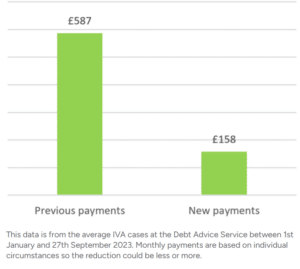
If you want to learn what debt solutions are available to you, click the button below to get started.
Is my partner’s income considered in repayments?
For the most part, no.
Your partner’s income isn’t generally considered when working out your IVA proposal and repayment amount.
But if your partner was to have a significantly higher level of income, they might be expected to contribute more to essential living costs, which would then mean you would be expected to offer larger monthly repayments.
On the flip side, if your partner was out of work or had a very low income, your IP might consider this as your income needing to support your partner as well. This could mean having to pay lower IVA monthly repayments.
Will an IVA affect my partner?
Even though an IVA is a personal debt solution, there is a possibility that it could affect your de facto partner or spouse in some ways.
Thousands have already tackled their debt
Every day our partners, The Debt Advice Service, help people find out whether they can lower their repayments and finally tackle or write off some of their debt.

Natasha
I’d recommend this firm to anyone struggling with debt – my mind has been put to rest, all is getting sorted.
Reviews shown are for The Debt Advice Service.
How will an IVA affect my partner?
An IVA could affect your partner in limited ways, but it will have a much bigger effect if you own a property together.
You might be asked to release equity from your home after five years to end the IVA. Equity can only be taken from the IVA user’s share of the property, but this may still require a joint remortgage.
It’s therefore really important to seek clarification on the Equity Release Clause of your proposed IVA from your IP. This is the clause that stipulates how equity should be released after five years if required.
They can also explain any other ways an IVA will affect your partner, including how an IVA will affect your partner’s credit score…
Does IVA affect other people in the household?
An IVA shouldn’t affect other people but you, with the slight exception that it could affect your partner in certain ways only in some situations.
Let’s rewind back to that…
Will my partner have to make any IVA contributions?
No, your partner isn’t obligated to make any IVA contributions because IVAs are individual debt solutions.
However, you might tackle your finances as a household and your joint money could be used to help you get through the IVA and cover joint or essential living costs.
Do I have to tell my partner about IVA?
There is no obligation to tell your partner about your IVA. Your creditors and your Insolvency Practitioner are not allowed to discuss your debts or IVA with anyone but you.
But there is a little catch here.
If you own a property with your partner, they might need to give permission regarding the Equity Release Clause of an IVA.
Can I get a joint mortgage if my partner has an IVA?
Yes, it’s possible to get a joint mortgage when one or both applicants are using an IVA. But it really depends on the lender’s lending requirements and your other financial circumstances.
Can I get a joint IVA?
Not exactly. It’s somewhat of a myth that you can get a joint IVA.
You can only get an IVA on your own, but in the case of joint debts, both individuals can use an IVA and interlock them to cover the joint debt.
During the process of using an interlocking IVA, both individuals will have access to conversations about the debt with IPs.
How do you set up an IVA?
You cannot set up an IVA yourself. You must use the services of an Insolvency Practitioner, who will also manage your IVA repayments and IVA restrictions.
Many people choose to use a debt management company to do this, but some charities can also help you arrange an IVA and continually manage your IVA. StepChange is one debt charity that can arrange this. You’ll still need to pay the fees, but they can provide free IVA advice upfront.
Creditors don’t have to agree to your IVA proposal, which will be made by your IP. All creditors of unsecured debt must be included and will have the chance to vote on whether to agree to the IVA or not.
If the IVA is accepted by the majority of creditors, or it’s accepted by creditors you owe the most money to, all creditors must be included in the IVA. Just because they voted no doesn’t necessarily mean they won’t have to enter into the IVA agreement with you.
Have you considered alternative debt solutions?
An IVA is an excellent and beneficial debt solution for some people, but it’s not the only debt solution and not the only one that can write off some of your debt. You can learn about other solutions on my How to Escape Debt page for free.
And you can access free personalised debt advice from debt charities, which will tell you the most suitable debt solutions in your situation!
